Received the 2025 Engineering Commendation Award (International Contribution Category)
~ Jamuna Railway Bridge in the People's Republic of Bangladesh Completed ~
September 16,2025
On July 22, 2025, the Package WD1 Jamuna Railway Bridge Project - Eastern Part of Civil Works in the People's Republic of Bangladesh, in which TOA CORPORATION engaged itself as the member of the joint venture*1 received the Engineering Contribution Award (Category: International Contribution) for the year 2025 from the Engineering Advancement Association of Japan.
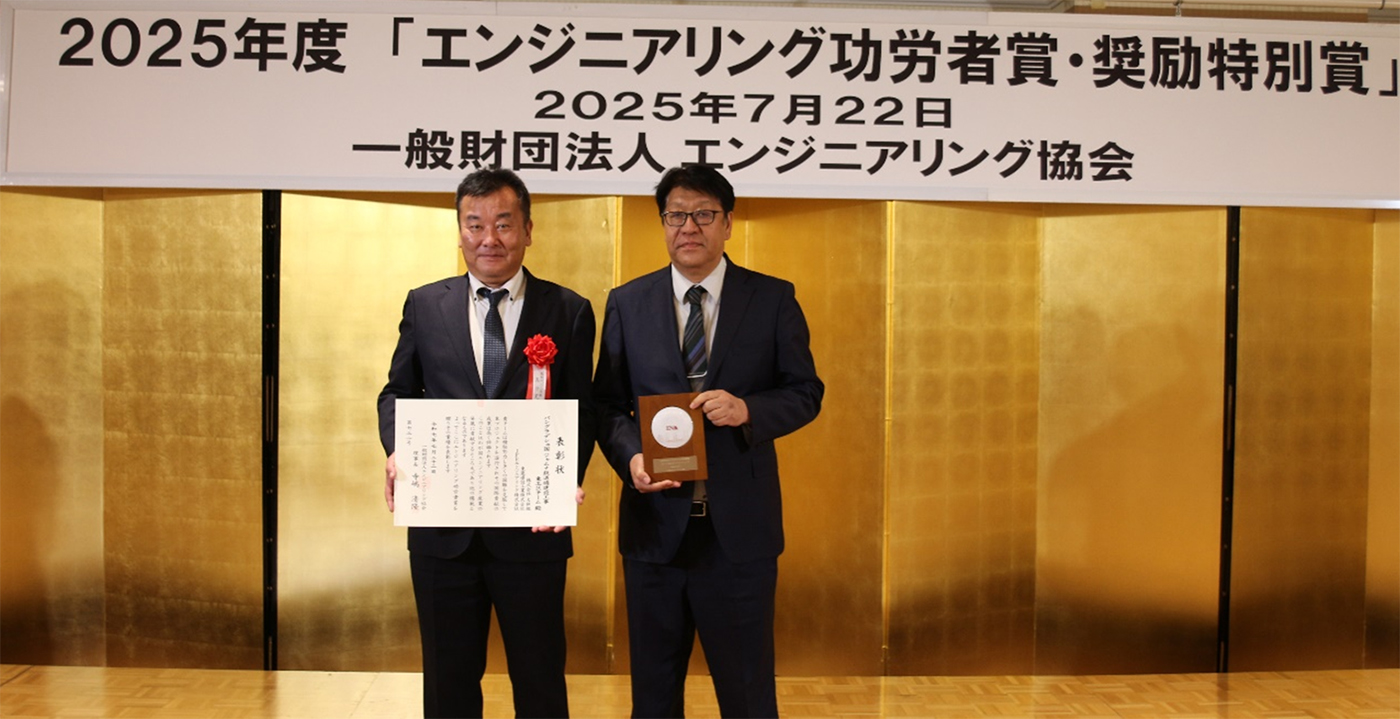
Award certificate/plaque received by TOA Bangladesh Representative Mr. Torii (Left) and International General Headquartersf Deputy Chief Mr. Moriyama (Right)
This Engineering Contribution Award recognizes individuals or groups involved in the engineering industry who have contributed to its development through their activities in areas such as international cooperation, improvement of engineering technology, environmental contributions, and contributions to the Associationfs activities.
Bangladesh was facing the challenge of strengthening its rail transport capacity to efficiently handle the increased demand for the container transport driven by the steady economic growth of the neighboring countries. To address the issue, this project was implemented. Parallel to the existing multi-purpose bridge spanning the Jamuna River, which flows through the central part of the country, approximately 5 km-long Jamuna Railway Bridge was newly constructed. (The project was divided into two parts and our joint venture was responsible for the eastern part of the project).
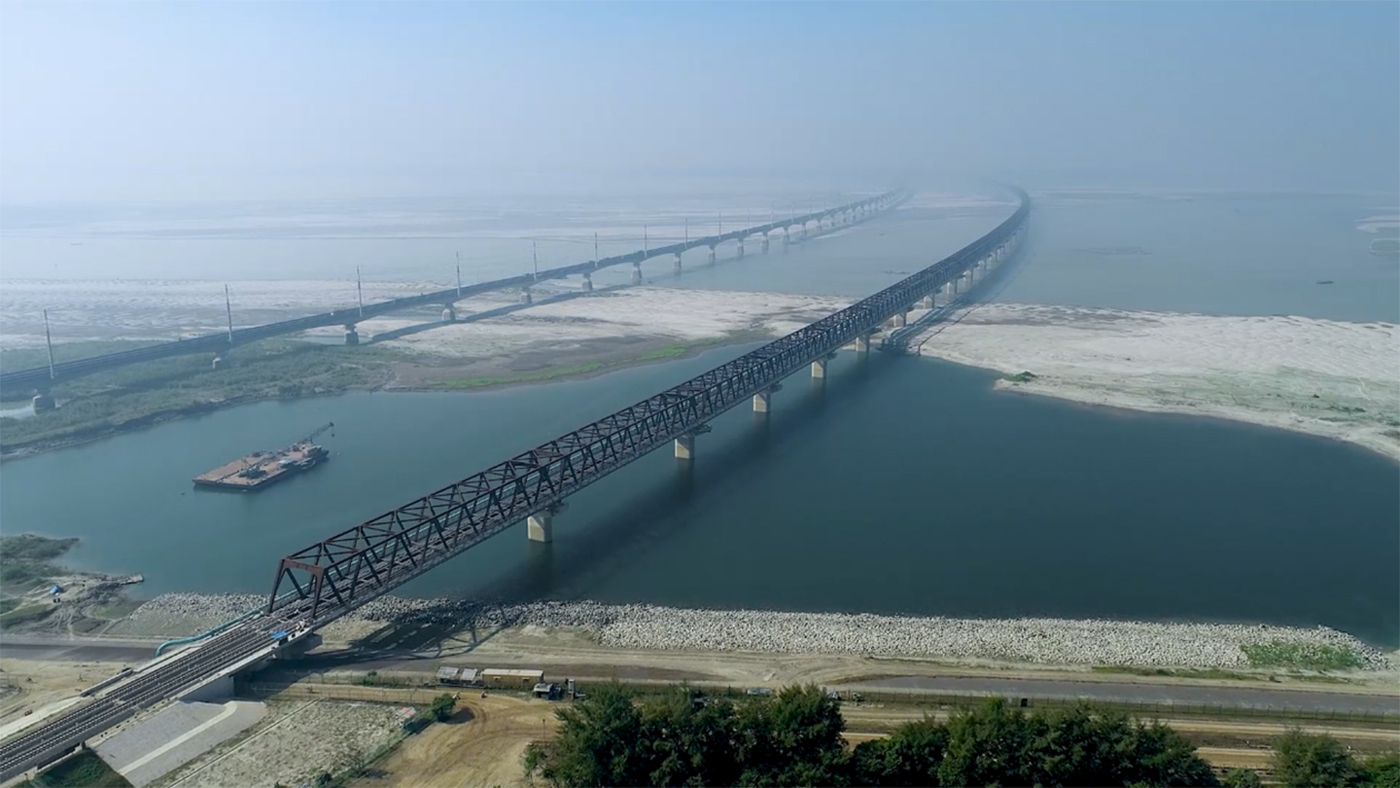
The existing multi-purpose bridge (left) had a single-track railway with restrictions on both speed and weight (up to 20 km/h). However, the newly constructed Jamuna Railway Bridge (right) is a double-track railway with speed up to 100 km/h, which is expected to improve railway transport capacity and the countryfs economic development in future.
This project commenced in August 2020 amid the global COVID-19 pandemic. The Jamuna River posed formidable natural challenges, including seasonal water level fluctuations of up to 8 meters, some areas experiencing flow velocities exceeding 6 knots, and as a result, erosion and sedimentation occurred in different locations every year, causing significant fluctuations in the riverbed elevation. Furthermore, in July 2024, during the final phase of the construction, civil unrest (riots) broke out throughout the country amid a change in the government. Overcoming such challenging natural and social conditions, the project was successfully completed within the contract duration.
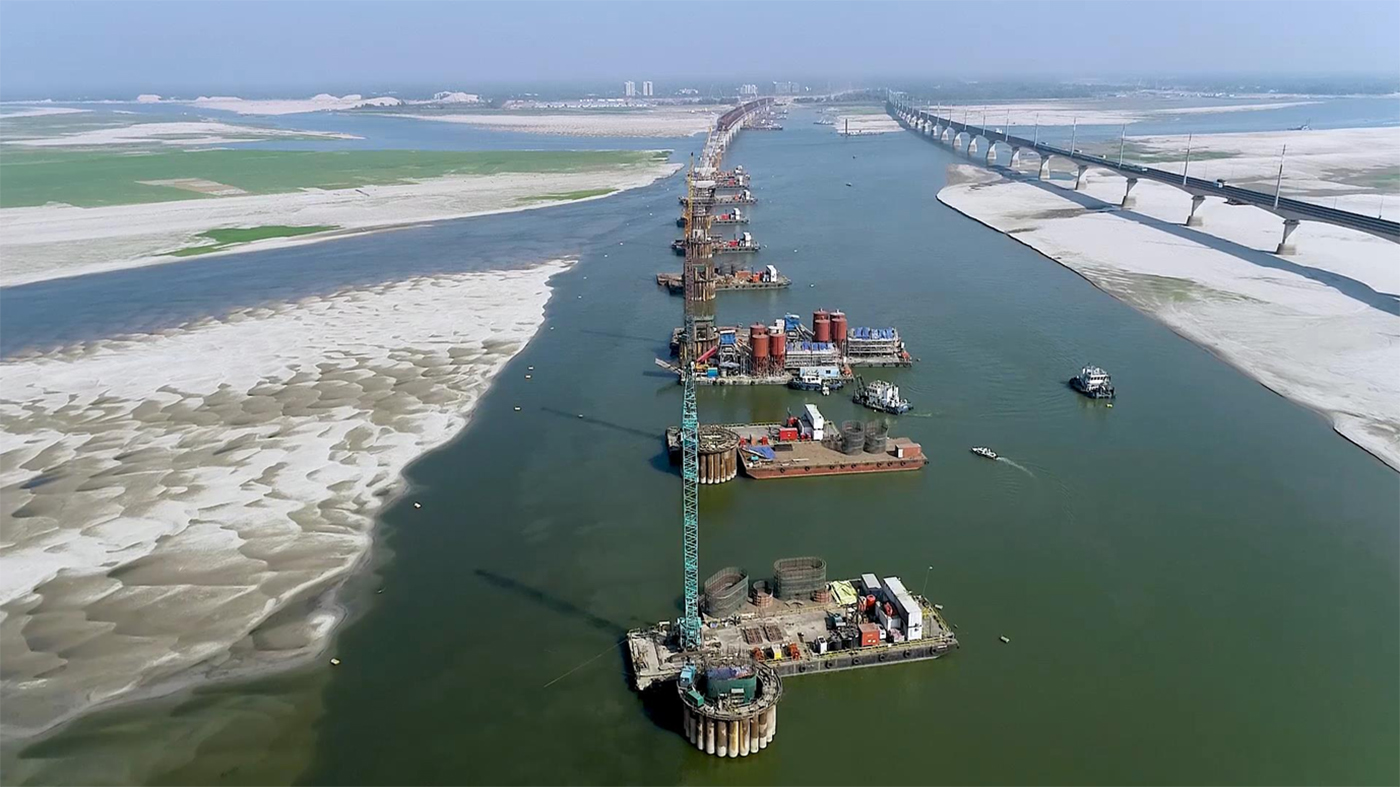
Throughout the project, we contributed to the society and industry of Bangladesh by creating local employment and facilitated the transfer of Japanese engineering expertise such as steel pipe sheet pile well foundation method, railway track technologies and safety management system. We also focused on developing local human resources. Not only construction, but we also emphasized the importance of maintenance and management of the constructed structures and created operation and maintenance manuals, held seminars, and provided hands-on trainings to the owner.
On March 18, 2025, the inauguration ceremony for this railway bridge was held, marking the commencement of the full-scale operations.
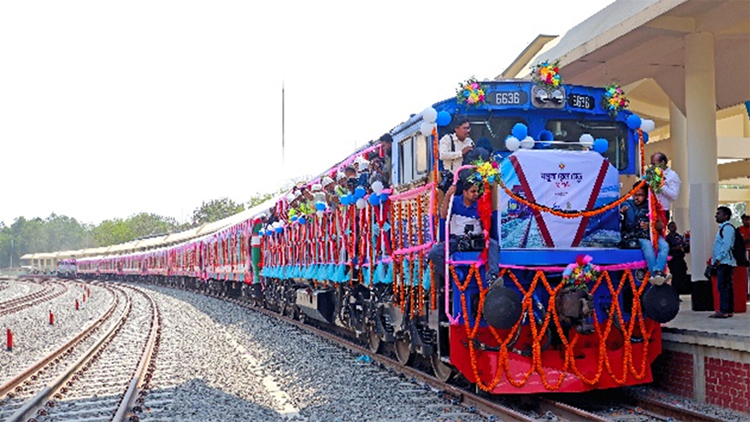
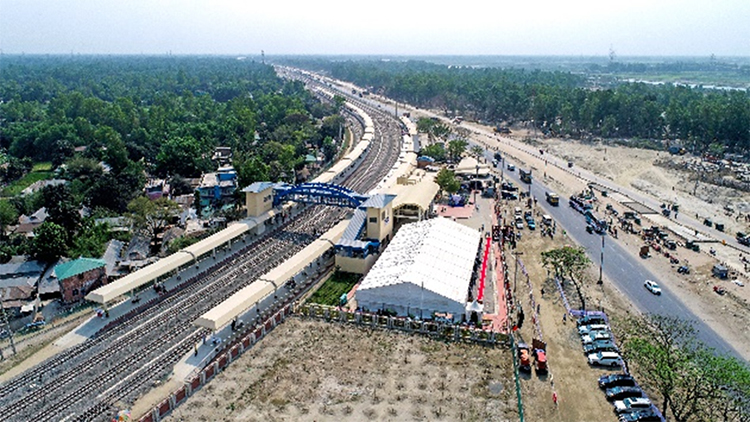
We will continue to take on new challenges for the future and contribute to the sustainable development of society through engineering and business that brings together technology and wisdom, while assessing changes in the times and the needs of society.
*1 The joint venture consisting of three (3) companies, namely OBAYASHI CORPORATION (Representative Director, President and CEO: Toshimi Sato, Head Office: Tokyo, Japan), TOA CORPORATION (Representative Director and President: Takeshi Hayakawa, Head Office: Tokyo, Japan), and JFE Engineering Corporation (President and CEO: Kazuyoshi Fukuda, Head Office: Tokyo, Japan)